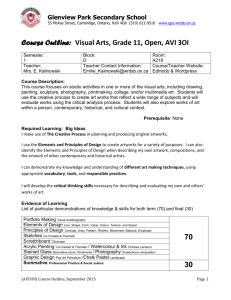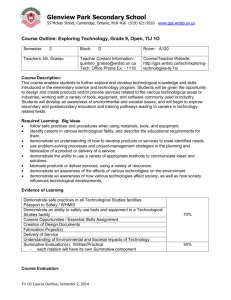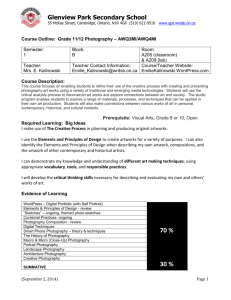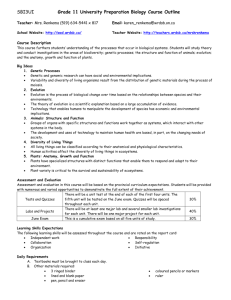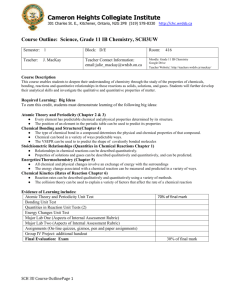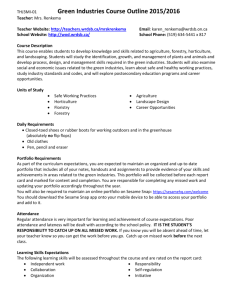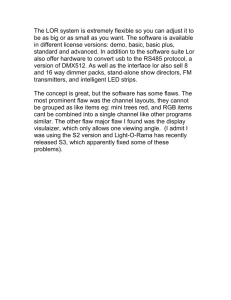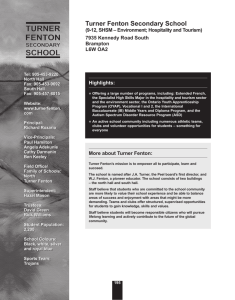TFJ 20B Course Outline 2014
advertisement
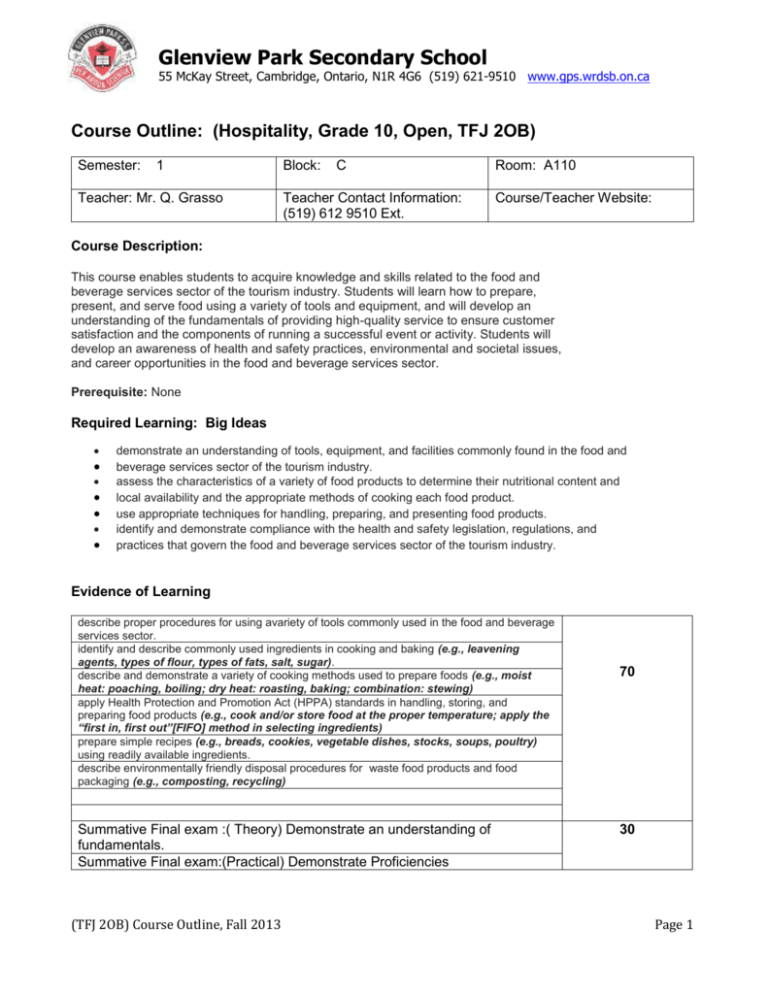
Glenview Park Secondary School 55 McKay Street, Cambridge, Ontario, N1R 4G6 (519) 621-9510 www.gps.wrdsb.on.ca Course Outline: (Hospitality, Grade 10, Open, TFJ 2OB) Semester: 1 Teacher: Mr. Q. Grasso Block: C Teacher Contact Information: (519) 612 9510 Ext. Room: A110 Course/Teacher Website: Course Description: This course enables students to acquire knowledge and skills related to the food and beverage services sector of the tourism industry. Students will learn how to prepare, present, and serve food using a variety of tools and equipment, and will develop an understanding of the fundamentals of providing high-quality service to ensure customer satisfaction and the components of running a successful event or activity. Students will develop an awareness of health and safety practices, environmental and societal issues, and career opportunities in the food and beverage services sector. Prerequisite: None Required Learning: Big Ideas demonstrate an understanding of tools, equipment, and facilities commonly found in the food and beverage services sector of the tourism industry. assess the characteristics of a variety of food products to determine their nutritional content and local availability and the appropriate methods of cooking each food product. use appropriate techniques for handling, preparing, and presenting food products. identify and demonstrate compliance with the health and safety legislation, regulations, and practices that govern the food and beverage services sector of the tourism industry. Evidence of Learning describe proper procedures for using avariety of tools commonly used in the food and beverage services sector. identify and describe commonly used ingredients in cooking and baking (e.g., leavening agents, types of flour, types of fats, salt, sugar). describe and demonstrate a variety of cooking methods used to prepare foods (e.g., moist heat: poaching, boiling; dry heat: roasting, baking; combination: stewing) apply Health Protection and Promotion Act (HPPA) standards in handling, storing, and preparing food products (e.g., cook and/or store food at the proper temperature; apply the “first in, first out”[FIFO] method in selecting ingredients) prepare simple recipes (e.g., breads, cookies, vegetable dishes, stocks, soups, poultry) using readily available ingredients. describe environmentally friendly disposal procedures for waste food products and food packaging (e.g., composting, recycling) Summative Final exam :( Theory) Demonstrate an understanding of fundamentals. Summative Final exam:(Practical) Demonstrate Proficiencies (TFJ 2OB) Course Outline, Fall 2013 70 30 Page 1 Glenview Park Secondary School 55 McKay Street, Cambridge, Ontario, N1R 4G6 (519) 621-9510 www.gps.wrdsb.on.ca Course Evaluation Student work will be evaluated using a balance of the Ministry’s four achievement chart categories: knowledge & understanding, thinking & inquiry, application, and communication. Throughout the course, teachers will gather evidence of student learning through observations, conversations, and student-produced work. Seventy percent (70%) of the final mark will come from term work, and thirty percent (30%) will come from final evaluations. Report card grades will reflect the student’s most consistent level of achievement, with consideration given to more recent evidence. Guidelines for Assessment, Evaluation and Reporting 1. Learning Skills The Learning Skills and Work Habits section of the provincial report card is an integral part of a student’s learning. Students will be assessed in the following areas: Responsibility Initiative Independent Work Collaboration Organization Self-Regulation The following scoring system is used for Learning Skills: E=Excellent; G=Good; S=Satisfactory; N=Needs Improvement 2. Missing Work Students are expected to submit all evidence of learning by the assigned date. (a) The Learning Skills section of the provincial report card will be used to reflect incidents of late and missing work. (b) At the time of entering a report card grade, students with missing evidence of learning may receive an “I” (“I” = insufficient evidence) on their report card and will not receive a credit (Grades 9 and 10), or may be assigned a failing mark and will not be granted a credit for the course (Grades 11 and 12). 3. Cheating and Plagiarism Students are expected to submit their own original, best work to demonstrate their learning. (a) The Learning Skills section of the provincial report card will be used to reflect incidents of cheating and plagiarism. (b) Students caught cheating on tests or assignments will receive an “I” (“I = insufficient evidence), and will be required to demonstrate their learning through an alternative evaluation. (c) Students who plagiarize may be required to re-do all or part of the assignment (or evaluation) or complete an alternative assignment (or evaluation). The student’s work may be treated as Missing Work (see above). As well, potential consequences for plagiarizing include disciplinary action (e.g., suspension) and loss of access to academic awards and scholarship opportunities. (TFJ 2OB) Course Outline, Fall 2013 Page 2 Glenview Park Secondary School 55 McKay Street, Cambridge, Ontario, N1R 4G6 (519) 621-9510 www.gps.wrdsb.on.ca [Other department/course-specific items will be included next, such as: - Safety - Textbooks - Equipment - Fees, etc.] Signatures Please sign below indicating you have read and understood this course outline, including the requirements for successful completion of this course, and return this sheet to your teacher: Student Parent/Guardian Date Date (TFJ 2OB) Course Outline, Fall 2013 Page 3
